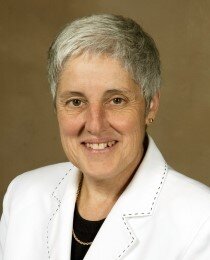Effectively Addressing Problematic Sexual Behaviors in Children and Adolescents

Michael D. Gomez, PhD
Michael Gomez, PhD, is a psychologist with Bradley Hospital Outpatient Services. He earned both his master of arts and doctor of philosophy degrees in clinical child psychology from the University of Kansas. He completed his postdoctoral fellowship in child abuse and neglect at the University of...

Margaret R. Paccione-Dyszlewski, PhD
Bradley Online Learning
[email protected]
For CME and APA continuing education credits: Release date: January 15, 2024 Valid through: January 14, 2026 Media: Internet Estimated Time to Complete Activity: 60 minutes
For NASW-RI continuing education credits: Release date: May 1, 2025 Valid through: April 30, 2027 Media: Internet Estimated Time to Complete Activity: 60 minutes
- The target audience for this course is psychologists, physicians, social workers and other interested health care professionals.
- The instruction level for this course is intermediate.
- 1 CE hour/credit
- This activity has been planned and implemented in accordance with the accreditation criteria and policies of the Accreditation Council for Continuing Medical Education (ACCME) through the joint providership of Rhode Island Hospital and Bradley Hospital. Rhode Island Hospital is accredited by the ACCME to provide continuing medical education for physicians.
- Rhode Island Hospital designates this enduring activity for a maximum of 1.0 AMA PRA Category 1 Credit(s). Physicians should claim only the credit commensurate with the extent of their participation in the activity.
- Rhode Island Hospital is approved by the American Psychological Association to sponsor continuing education for psychologists. Rhode Island Hospital maintains responsibility for this program and its content.
- CEs for this event have been approved by NASW-RI Chapter in accordance with the Regulations of the Rhode Island Social Work Board of Licensure, designating this activity for a maximum of 1.0 continuing education credit. NASW Authorization # RI-9882.
Disclosure of potential relevant financial conflicts of interest within the last 12 months must be made and resolved prior to the date of the CME/CE activity. The intent is to assist learners in assessing the potential for bias in information that is presented during this CME/CE activity.
Michael Gomez, PhD has no relevant financial interest or contractual relationships with commercial interest to disclose.
Margaret Paccione-Dyszlewski, Ph.D. has no relevant financial interest or contractual relationships with commercial interest to disclose.

